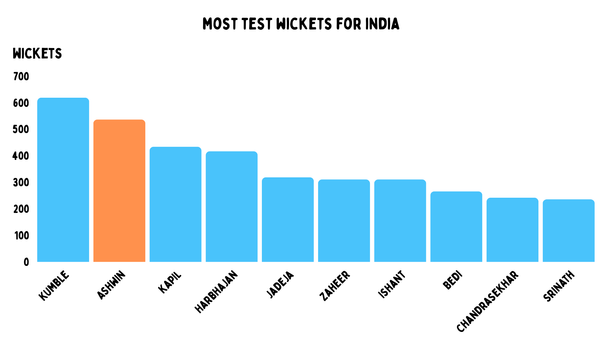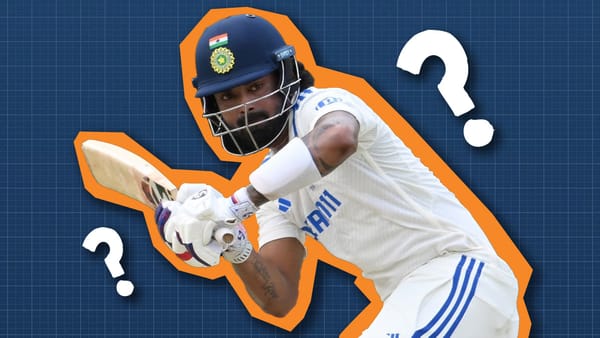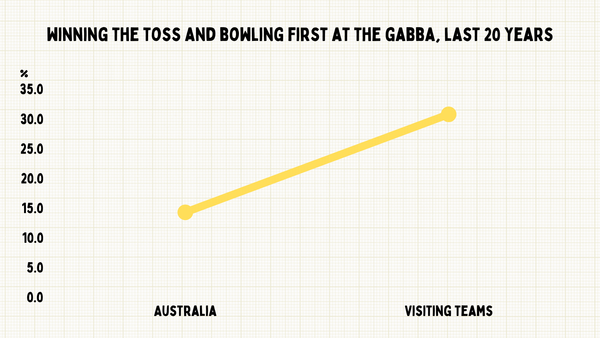My personal World Cup Review
World Cup is over. Though pretty sure I have 3 more features that are yet to be published. During the tournament, I did around 35…

World Cup is over. Though pretty sure I have 3 more features that are yet to be published. During the tournament, I did around 35 published pieces (including one for the Herald Magazine on Sarfaraz). That doesn’t include commentary for World Feed and SEN or updates for Talksport. Was on a podcast or two in there somewhere, and loads of video over the journey. Oh, plus Thor and Xena gifs.
So here is a list of the stuff I have written over the trip. I am only sharing the ones I like, and I haven’t read them back so who knows what is good or not. But these are in rough order of how much I liked them, and why.
Part of the reason I am doing this is to reflect on my work, part catharsis, and also just to look back at what I did. But hoping that my thoughts on my own work will help newer writers as well. The fullish list of my CI work is here.
Best shots in cricket — This is the kind of piece that I started writing back in the day because this is how my mates and I used to talk about cricket (Sime, if you’re reading this, remember the Richie Richardson convos?). But then I took what is a bit of a silly subjective listy piece and made it stand up with crowdsourcing from Reddit and twitter and days of research. There are large parts of me in this, but it’s ultimately a love poem to batsmen and the game.
Pakistan wins the World Cup — This wasn’t a planned feature, nor a request from management. This was written essentially on a day off in a stream of consciousness (still annoyed I missed out the meme guy). But again this comes from love, in this case, maybe less to do with the cricket, but the way Pakistan fans consume the game. As a young guy I fell in love with Pakistan cricket, but as an old man I am falling in love with the Pakistan fans. I just felt like I had to write this, to document it, for some reason it mattered to me and I wanted to match their passion and energy when I wrote it.
The Mongber XI — One of my first major assignments for CI was writing a joint column with Alan Tyers. I was terrible at it, and since then, not sure I’ve ever written one again. That is stupid, I just needed to find a way to make it work. So during this World Cup I thought trying to replicate Monga and I talking about cricket could work. This was actually the second one, the first one got lost in Ind v Pak madness and had dated by the time they were going to publish. A bit like the best shots piece I wanted to recreate the kinds of conversations we had on cricket. I didn’t really care about the best XI, but I did care about the process and logic behind it. Monga and I have a sick relationship, and it was time the world felt some of it. Think this is something we can do more of.
The two ties — When I pitched this, I knew two things, it wouldn’t be the most read piece, and that it was definitely the piece I should write from the final. This is where my attention to detail, fast writing skills and story all come together. It’s 2500 words written in three hours with breaks for two press conferences two interviews (that Matt Henry is lovely) and I wrote some of it sitting on the Lord’s roller. But the reason I wrote it is that I genuinely thought this was a game like nothing else, and while the obvious pieces were about how NZ might never get this close again, and hurrah English cricket. The game itself was so unique I figured that I should follow that. I am not sure I did it justice, not even sure you can, but I gave it a crack.
The semi-final we didn’t think we’d have — The India New Zealand match was supposed to be easy for India, and it wasn’t. And I wanted to capture that, and re-examine the start that NZ had that was derided at the time. We focus on the end, because of recency bias and result bias. But this game was really set up at the start of both innings. The easier piece would the Zeitgeisty review of Dhoni’s work, but I wanted to look at the part of the game that people had forgotten about, New Zealand’s dot balls to start the match. I wrote it in a weird non-linear way, because I wanted that constant comparison, but when I tried it that way it also worked better from a story point of view. I probably have more writing styles than most sports writers, but even I end up falling into traps on these things. In this case the events dictated the story brilliantly.
Who caught it better — For the Australia West Indies game I ended up writing three separate analysis pieces. It was a bit crazy, and we probably jumped the gun on the first piece, and I ended up playing catch up all day. Memo to self: if your editor asks you to file early, ask if it is really needed, like, really really. One of the pieces was on Sheldon Cottrell’s boundary catch. And at that point I don’t think we were quite ready to write the definitive piece on Sheldon’s fielding. But I really wanted to talk about the catch, and also compare it with the Stokes catch earlier. Not because either could be actually better, that’s clearly subjective nonsense, but because they were both wonderful. But I wanted to write it in a style where I got as much information about both catches into the piece, without it feeling that way. So I wrote it using two fanboys of each catch having an argument. That meant that both catches got their due as incredible feats of athleticism, and it was still a really fun thing to read.
Deep dive analysis into matchups and stuff — When commentating with Harsha Bhogle during one game, I gave a piece of information, and he responded with, “that’s what someone who has spent all his recent time analysing for teams would say”. And he is right, I can’t argue. At times I see cricket in code. Mostly I didn’t write about it, not because it’s not exciting, but just because story and historical documents still need to be maintained. But after the NZ AUS game, it did seem interesting and relevant. This is an article from someone who has watched a lot of cricket in a way most fans and writers never do. If I wrote every piece like this, the writer in my would stage a walkout. But this piece showed how far cricket thinking had come, and also where it could improve. That is a massive part of the job, as much as chronicling the history of something is.,
We believe in Australia’s DNA — I had already written a preview piece earlier on in the tournament about how the Aussie World Cup winning DNA. And like most preview pieces it was padded a bit, and had little of substance, this is my second go, in the moments after Australia’s loss (while I was crook as a dog) to get it right. This was what I wanted to say the first time, but had the added authority of knowing that it had ended. There is an inevitability of writing the same kinds of pieces, and for me — who started as a creative writer — it really grates. But it is part of the job, and all you can do is try and improve on what is now primarily a first draft. In this case, the first piece lays out the idea and has some funny lines. The second piece is a proper review of Australia’s world cup and the nonsense of winning DNA.
England and left arm seam — This was a bit like the Pakistan fans piece, no one asked for it, but I couldn’t get it out of my head that the world’s most dominant team had this glaring weakness within them. I talked about it on radio, podcasts, with friends and on Twitter. But I needed to take a look at it. A writer friend in this world cup told me I was writing too much analysis and not enough story. And I get that annoys some people, but while the stories are great, and I’ll never stop writing them, taking people behind the curtain is kind of the job of sports writing too. Hopefully, I got the balance right, but in this piece, I wanted fans to understand a bit more about England because they were clearly going to be a story in this series. But we also tried to make it visual, because these pieces aren’t for everyone, and you really want to get people in who aren’t just cricket analytics people. Hopefully, I did that.
Shakib and the mythical all rounders — The more we look at what makes a cricketer good, the more we end up trying to work out all rounders in cricket. Because their worth is beyond the stats, and the whole thing fascinates me. We don’t even have a proper definition of what an all rounder is (My stats friend Shiva almost died as I continued to break his brain with wrinkles for this piece). But that is kind of why I wanted to write this piece, because we use the phrase in cricket all the time, and it can mean completely different things for players. And I wanted to get to the bottom of that as best I could. This was a feature written on the run, But I think I at least started the conversation well for follow up pieces into the future.
The Dre Russ gamble — There aren’t many people in the West Indies, and pieces on them don’t get massive reads. But I thought the courage of Andre Russell’s performance should be put into perspective a bit, and not getting reads is sometimes worth it. When I searched for info on Russell’s knees online, I found nothing, so this piece may have worth into the future. But while most people made fun of him or questioned why he was playing in the first place, I tried to show how much courage and sacrifice he gave.
Starc v Kane preview — so preview pieces are rubbish. Not for all writers, some love to get into them and create something from the day before an event. I need the event, I need it happening to get me flowing, I’d honestly prefer to write a feature before each match I cover than write about what might happen the next day. For some reason, though this preview got me excited, and I teach this in the course, write about the thing that gets to you, and this is what this is. I wrote at least two other Starc pieces, maybe both were better than this, but this was the one that I’m most proud of.
Finch Feature — This came so early in the piece that I don’t remember it much. But I made a bunch of calls on this, really tried to get into what made Finch tick, and wrote an in-depth article on Finch the leader. My memory was this pretty decent work.
Afghanistan’s horror campaign — I’m not sure how good this is. But I know how good it should be. But due to a bunch of things beyond my control, it was rushed when I wrote it, and then probably put online before I had really finished it. But this could be an essential series in the history of Afghanistan cricket, and I wanted to tell their story, even if it wasn’t good. Would prefer a do-over on this, but glad I wrote it.

Afghan Number eights — When I wrote this, I knew I would be attacked online. It’s not a hot take — in fact it’s quite an obvious take once you’ve seen them a bit. But there are some teams you are not supposed to write anything but gushing “isn’t it wonderful they exist “ pieces on. Well, that’s rubbish. The Afghanistan cricket team can be at once a miracle that we can all feel blessed for, while also being a cricket team with poor batting. Never write takes to get people upset, because that’s ultimately pointless and reductive. But never be afraid to say the unpopular thing if you genuinely believe it and can back it up.
Australia’s World cup gambles — Another preview piece where I made a bit more of a story about it. Can’t remember much of it, but know it felt like I got on top of my poor preview game here.
Warner’s wheelhouse — Warner is a tricky guy to write about now because he is so hated by people that anything not calling him subhuman scum gets attacked. And for me, who now knows him after working together at St Lucia, it is even weirder. But I really wanted to look at his game, because as sports writers we get a bit into the personality and story matrix, but his actual game has changed, and that is worth looking at.
For the entire World Cup, I give myself a six out of ten. Some good stuff here, but I struggled a bit at times to consistently nail match pieces. I didn’t step up for previews either. CI tried to keep me to a more enforced word count (which is fine and fair to do, I have had the loosest of leads for a long time), and I let that get into my head. Also, as a professional, I should be able to handle that better than I did.
Part of my struggles was having it at home, so much of my best writing is done while travelling on big tours because I see anytime away from home as something I have to make worth missing days with my family. For this series, I had two extended stays at home, and while that helps in my features, it just stops my desire and hunger from doing my best work in general. So I need to work out how to replicate the feeling I have away on tours at home, especially as I tour less.
Another thing I felt was that I went in with too small an idea on what I should be writing. In my course, I talk about all the different kinds of writing you can do at sport, and yet for much of the WC I went in with the idea of writing ana analysis piece or a story piece, and not much else. That’s just a lack of thinking and planning on my part. Some of these above pieces the content is right, but maybe I could have found other ways to tell them. Especially on preview days.
There is also the job of being an analyst, a bit like I sometimes have trouble with films or books because I see into how they are made, I sometimes struggle to see the game just as a writer anymore. That can be a beautiful thing, and maybe some of my best writing came out of that. But I also need to keep managing how it worked. And that was the real problem here, I never thought about it until late in the tournament.
Also, while a lot of my writing has changed, I must start to take into account that I have changed. From 2012 to 2016, I felt like I was on a mission to become one of the world’s best cricket writers. For a competitive person like me who suffers from as much imposter syndrome as anyone, it really drove me forward. But once you get to a decent level, it has to be replaced with someone else. And I haven’t done that. Perhaps that six out of ten is a really a mark of that, I think I should be producing now, while also looking back on all my best work and forgetting that I always had days where it just didn’t work in between.
There is a battle here that goes back to 2013 between what I think I should do, and what is actually possible in the job. My editor David Hopps once took me aside and said I had to stop killing myself, that not every piece had to be the great definitive piece, some days we just have to let people know what is happening and file on time. I still battle with that, on a normal human pragmatist level I know Hoppsy is right. Even Wright Thompson bashes some out. But I also know that I don’t want to become one of those sports writers who just turn up and only writes great when the moment allows it.
That fire to be the best I can be almost broke me and produced some fuck awful terrible pieces. I use to get headaches from being at cricket matches, in fact, for most of my life as a player and writer, I did. I don’t anymore, and part of that is because of Hoppsy allowing me to breathe. But that fire to be different, relevant, to make every piece matter, is also what I missed this time. I have to find a balance.
The biggest problem I had was that I didn’t do enough preparation. I usually hit a series like this flying, even though I had a bunch of features ready to go at the start, I just didn’t think about this World Cup enough, and I didn’t do enough research on the way in. In truth, I forgot. This is why I have such strict processes in my work, because I forget, and can be lazy.
There are things I can work on:
A solid plan for previews that starts with me respecting them
A preparation period for any significant event — this must include reading days, research plays and draft
Find new ways to get the fire back
Work on what I want to get out of this series coming in
Evaluate my work during the series, not just after
Ensure I look at my list of what is possible at games

I don’t know how much this well help newer writers, but being good at something is tough, and staying good is just as tough. This is not a magical skill, it’s a craft that you have to work at and understand.


